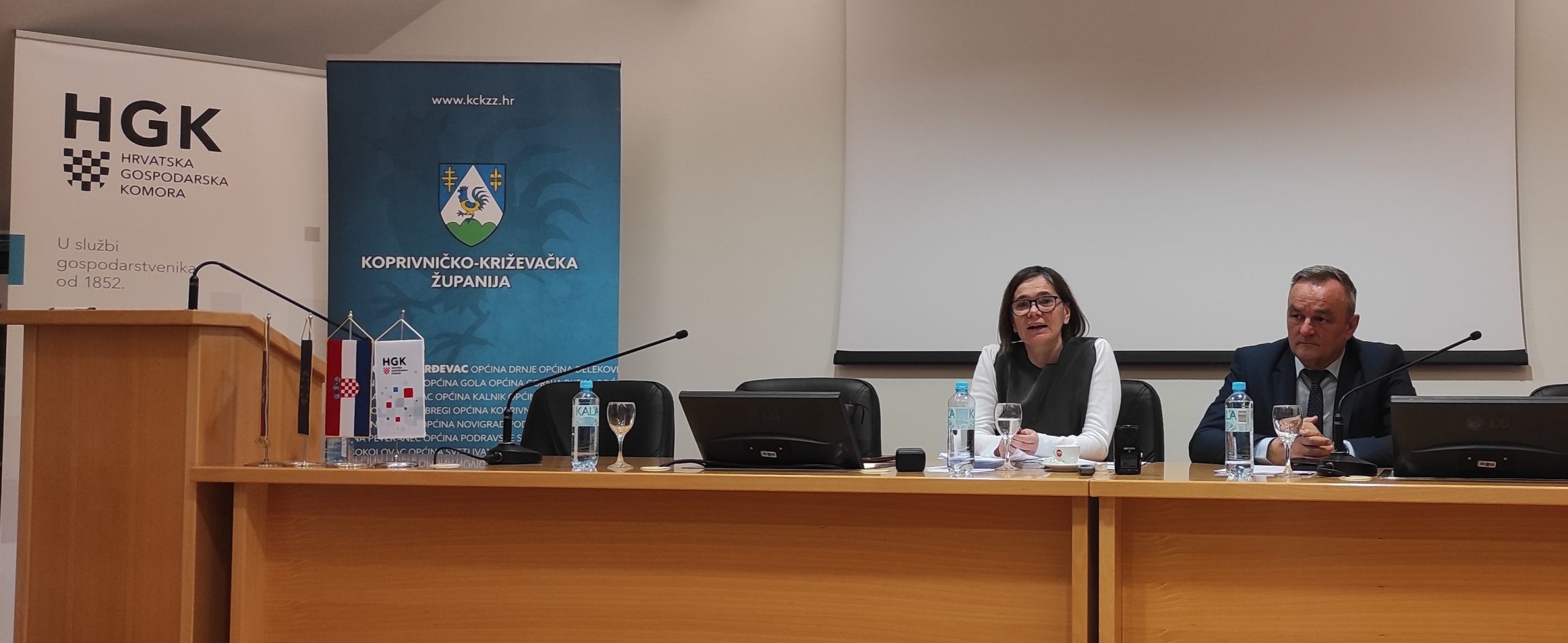To mark International Human Rights Day, Deputy Ombudswoman Tatjana Vlašić delivered a lecture in Koprivnica on 12 December 2023, addressing the state of human rights and the rule of law in Croatia, with a special focus on public administration and its role in preventing human rights violations and in the protection of rights.
The event was attended by the Prefect of the Koprivnica-Križevci County, Darko Koren, as well as the Deputy Prefect and Chair of the County’s Human Rights Coordination, Ratimir Ljubić. Also present were directors and other senior officials of public institutions from various sectors, including education, health care, and social welfare.
Deputy Vlašić emphasized that citizens are still, unfortunately, insufficiently aware of their rights and therefore often fail to recognize when those rights are being violated. This is why the institution continues to stress the importance of introducing comprehensive civic education, including human rights education, across all levels of the education system and from an early age.
She also praised the initiative of the City of Križevci, one of the local governments that has already introduced civic education. She further noted that the extent to which human rights are realized at the regional and local levels is significantly influenced by the degree of development of individual local and regional self-government units, and that disparities in development often lead to unequal access to rights and services.
Deputy Vlašić also stressed that the right to good governance is part of the legal acquis of the European Union and one of the principles contained in the Charter of Fundamental Rights, a legally binding document that both the county and local authorities must apply in their work. Regarding citizens’ complaints related to the work of public administration that we receive, they most often concern the silence of the administration—that is, the failure to respond to citizens’ inquiries—then the lengthy duration of procedures, as well as insufficient information provided to citizens about the services offered by certain bodies and the related procedures, especially in a simple and understandable manner.
She also addressed the necessity of citizen participation in decision-making processes as one of the ways to strengthen public trust in institutions—which remains low in Croatia—and highlighted the importance of cooperation with civil society organisations, as also noted in the European Commission’s Rule of Law Report.
Deputy Vlašić touched on a number of specific topics as well, including housing issues, the rights of older persons, health insurance and health care, challenges in realizing the rights of members of the Roma national minority, and the digitalisation of public administration services, which, as a result, remain inaccessible to some groups of citizens. She concluded that public administration which manages to respond to the needs of citizens is also one that effectively prevents violations of their rights.
The lecture was organised as part of a regional project implemented by the Office of the Ombudswoman in cooperation with the EU Agency for Fundamental Rights (FRA), funded by the EEA and Norway Grants Fund for Regional Cooperation.





